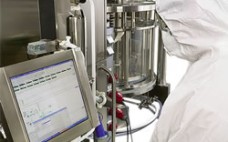For a growing number of biopharmaceutical companies, the world is getting smaller. They are operating in smaller, more flexible facilities; servicing potentially smaller markets; and managing local products. Local manufacturers are looking for ways of doing standard processing less expensively without making changes that carry regulatory risk. Most of these facilities are vaccine manufacturing sites. The upsurge in localized diseases and need for global pandemic preparedness (especially under uncertain capacities) have countries such as Malaysia, India, China, and Brazil pushing…
Tuesday, June 1, 2010 Daily Archives
How Geography Affects the Cost of Biomanufacturing
As the biopharmaceutical industry undergoes restructuring, its focus shifts to the efficiency of drug development and overall costs of delivering affordable medicines. A question often raised concerns the manufacture of drug substances overseas to tap into a cheaper manufacturing base (1). There are many issues to consider when looking at overseas locations, such as intellectual property (IP), the availability of skilled labor, and the emergence of new markets. The situation is more complex with biopharmaceuticals because the products…
Practical Considerations for DoE Implementation in Quality By Design
It is generally accepted that quality cannot be tested or inspected into a finished product, but rather that quality, safety, and effectiveness must be “designed” and built into a product and its manufacturing process. To encourage new initiatives and provide guidance to pharmaceutical process developers, the International Conference on Harmonisation of Technical Requirements for Registration of Pharmaceuticals for Human Use introduced the quality by design (QbD) concept. ICH-Q8 defines it as “a systematic approach to development that begins…
A Convergence of New Products and Technologies Changes the Game
Vaccine makers are leading the way — that’s something you don’t hear every day. For many years, vaccines were seen as “old-school” and less profitable than other biologic products — and they were the business of just a few huge companies. But thanks to recombinant technology, it’s a real Cinderella story: Advancing technologies led to what’s being called the “vaccine renaissance.” And now, vaccine companies may have something to teach their biopharmaceutical brethren. In April 2004, BPI may…
Contractor Responsibilities in Outsourced Pharmaceutical Quality Control Testing
Pharmaceutical companies of all sizes outsource at least some quality control (QC) testing to contract analytical testing laboratories. Virtual and smaller companies may not have the staff to conduct such testing, whereas mid- to large-size companies may outsource testing that they do not wish to perform in-house. In the relationship between a pharmaceutical company and its outsourcing partner, each partner has clearly delineated responsibilities, both business and compliance related. In May 2010, we discussed a contractee’s (contract giver’s)…
Manufacture Locally, Market Globally?
One response to a survey we sent out last year kept coming back to me as we prepared this issue. In answer to what a company does if a product in development doesn’t fit into the company’s platform technology, one answer was, “We innovate a solution.” Whether meant seriously or not, it rings true to the history of the industry’s ability to invent and reinvent solutions as necessitated by economic realities. When we began working on the topic…
Measuring Manufacturing Cost and Its Impact on Organizations
The first article in this periodic series reviewed the impact of cost pressures on the biopharmaceutical industry, in particular the challenges the industry faces in relation to high capital costs, complex processes, and long product development cycles (1). Here we examine what companies are doing to assess costs in decisions about process and technology choices relating to manufacturing of biologic drug substances. We will look into what companies are currently doing and what they need to be doing…
Technology Transfer of CMC Activities for MAb Manufacturing
As monoclonal antibody products succeed and advance through development, their manufacturing requirements change. The probability of a smooth and successful technology transfer process depends on several factors. Sending and receiving parties must be well aligned in expectations, which can be facilitated by early and detailed planning and communications.
To help companies developing MAb products, BioProcess Technology Consultants recently published a comprehensive report outlining the complex technical, regulatory and strategic chemistry, manufacturing and control (CMC) activities necessary to successfully advance new MAbs from discovery to first-in-human clinical trials and the market as quickly and economically as possible. Read this informative white paper to learn more.

